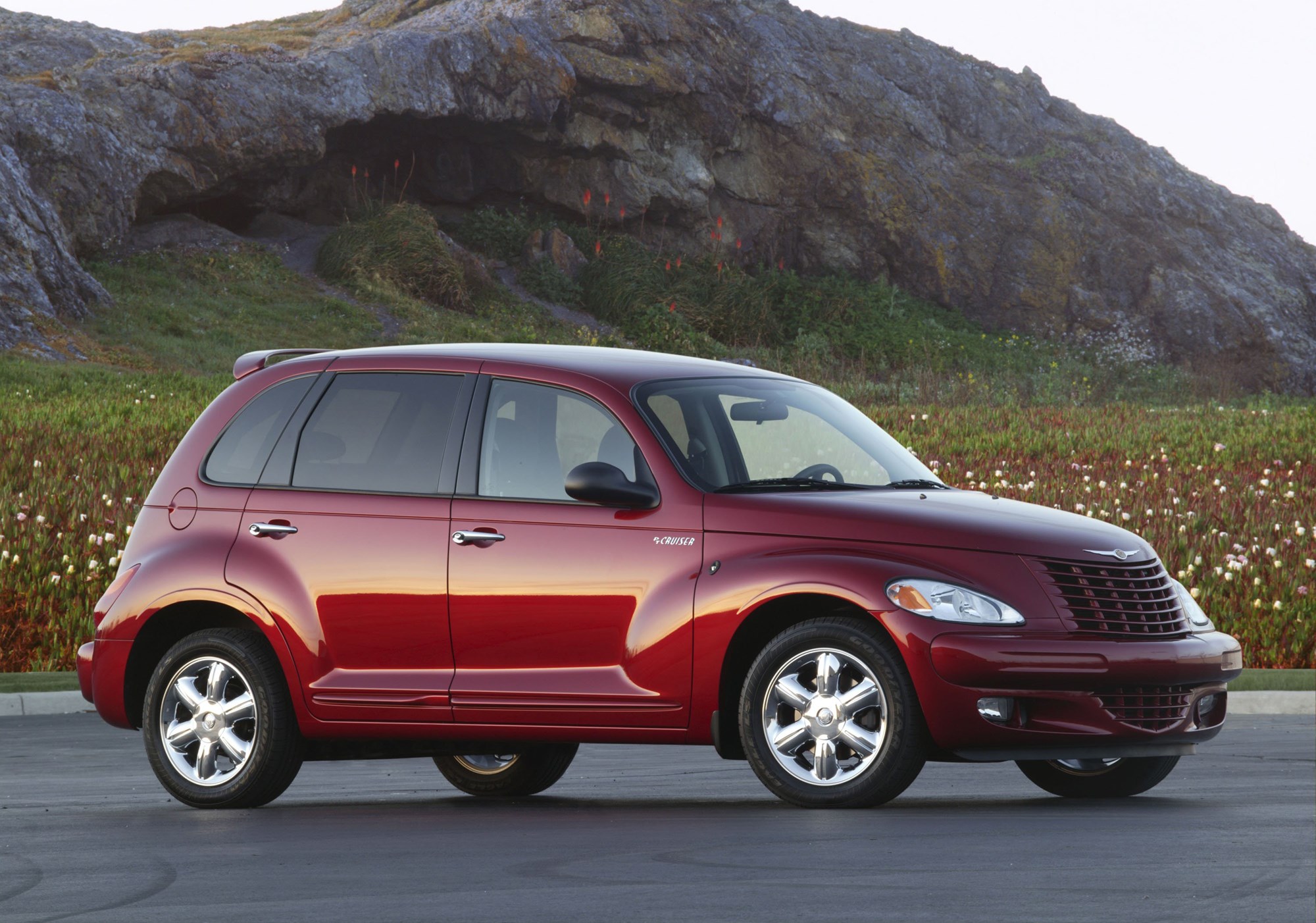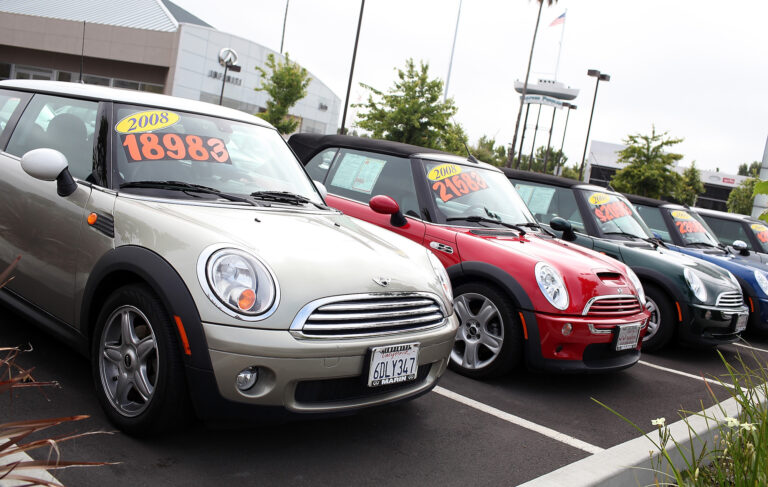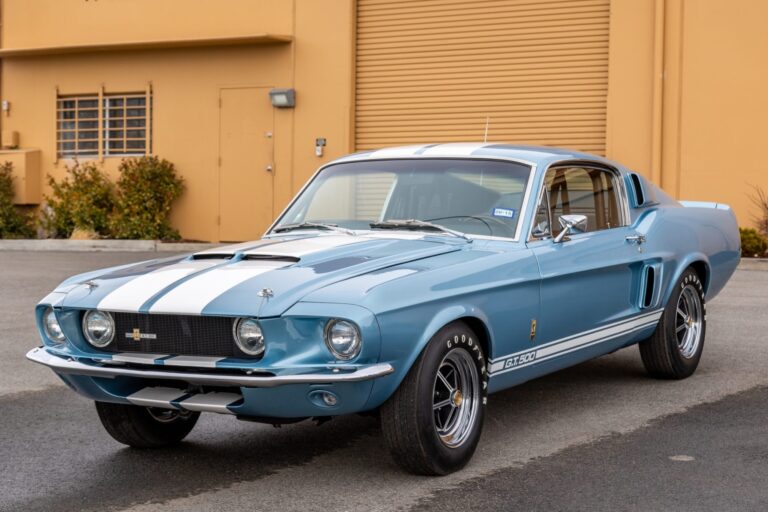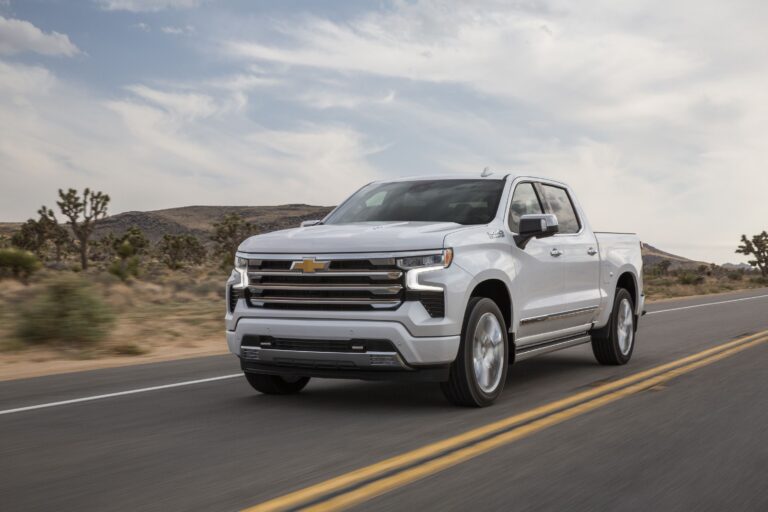Car Brands From America List: A Comprehensive Guide to the U.S. Automotive Landscape
Car Brands From America List: A Comprehensive Guide to the U.S. Automotive Landscape cars.truckstrend.com
The American automotive industry stands as a monumental pillar of innovation, economic power, and cultural identity. From the pioneering spirit of Henry Ford to the electric revolution spearheaded by Tesla, car brands from America have consistently shaped the global automotive landscape. This comprehensive guide, "Car Brands From America List," delves into the rich history, diverse offerings, and future trajectory of these iconic manufacturers, providing a detailed look at the companies that put the world on wheels and continue to drive progress. Understanding this list is not just about knowing names; it’s about appreciating the engineering prowess, design philosophy, and economic impact that these brands represent, both domestically and internationally.
The Titans of Detroit: The Big Three
Car Brands From America List: A Comprehensive Guide to the U.S. Automotive Landscape
For over a century, three automotive giants have dominated the American car scene, collectively known as "The Big Three." These companies have endured wars, economic depressions, and fierce global competition, consistently adapting and innovating to remain at the forefront.
General Motors (GM): A Portfolio of Diversity
General Motors (GM), founded in 1908, is one of the world’s largest automakers and a true embodiment of American industrial might. GM operates a diverse portfolio of brands, each catering to distinct market segments:
- Chevrolet: Often considered the backbone of GM, Chevrolet offers a vast range of vehicles, from popular pickup trucks like the Silverado and SUVs like the Tahoe, to iconic sports cars like the Corvette and family sedans. Chevrolet is known for its reliability, broad appeal, and accessible technology.
- Cadillac: America’s quintessential luxury brand, Cadillac has long been synonymous with elegance, comfort, and technological advancement. While historically known for large, opulent sedans, Cadillac has successfully transitioned into the luxury SUV market with models like the Escalade and XT series, and is now pioneering luxury EVs with the Lyriq.
- GMC: Focusing primarily on trucks, SUVs, and vans, GMC positions itself as a premium utility brand within the GM family. Known for its robust build quality, professional-grade capabilities, and upscale features, GMC vehicles often share platforms with Chevrolet but offer distinct styling and higher trim levels.
- Buick: Buick occupies a unique niche, bridging the gap between mainstream and luxury. It’s often favored for its quiet ride, comfortable interiors, and sophisticated styling, particularly appealing to those seeking refinement without the full premium price tag of a Cadillac. Buick has a strong presence in China, which significantly influences its global strategy.

GM’s strategic pivot towards electric vehicles (EVs) and autonomous driving technology underscores its commitment to future mobility, with substantial investments in battery technology (Ultium platform) and software-defined vehicles.
Ford Motor Company: The Legacy of Innovation
Ford Motor Company, established by Henry Ford in 1903, revolutionized manufacturing with the introduction of the assembly line and made cars accessible to the masses with the Model T. Ford’s impact on American society and global industry is immeasurable.
- Ford: The primary brand of the company, Ford is renowned for its segment-defining vehicles. The F-Series pickup trucks have been America’s best-selling vehicles for decades, lauded for their capability and versatility. The Mustang remains a global icon of American muscle and performance. Ford also offers a strong lineup of SUVs (Explorer, Escape, Bronco) and is making significant strides in the EV market with the Mustang Mach-E and the F-150 Lightning, demonstrating its commitment to electrifying its most popular models.
- Lincoln: Ford’s luxury division, Lincoln, aims to provide an "American luxury" experience characterized by serene interiors, intuitive technology, and elegant design. Models like the Navigator and Aviator compete directly with other premium SUVs, emphasizing comfort and sophisticated styling over aggressive sportiness.

Ford’s "Ford+" plan focuses on connected vehicles, electric mobility, and digital services, signaling a future-oriented approach while leveraging its deep-rooted heritage.
Stellantis (North America): The Powerhouse of Utility and Performance

Stellantis, formed in 2021 from the merger of Fiat Chrysler Automobiles (FCA) and PSA Group, houses several iconic American brands with distinct personalities. While now part of a global conglomerate, these brands maintain their strong American identity and manufacturing presence.
- Chrysler: Once a broad-line manufacturer, Chrysler’s current lineup focuses on family-oriented vehicles like the Pacifica minivan, known for its innovative features and practicality. The brand is poised for a significant EV transition, aiming to redefine its luxury and technology offerings.
- Dodge: Synonymous with performance and muscle, Dodge appeals to enthusiasts who crave raw power and bold styling. The Challenger and Charger are modern interpretations of classic muscle cars, while the Durango SUV offers a performance-oriented family vehicle. Dodge is actively exploring electric muscle cars to carry its performance legacy into the EV era.
- Jeep: Perhaps the most globally recognized American brand for off-road capability and adventure, Jeep has cultivated an incredibly loyal following. From the iconic Wrangler to the family-friendly Grand Cherokee and Compass, Jeep vehicles are designed for ruggedness and exploration. The brand is also embracing electrification with its "4xe" plug-in hybrid models.
- Ram: Spun off from Dodge, Ram has established itself as a standalone brand dedicated exclusively to trucks. Ram pickups are celebrated for their powerful engines, comfortable interiors, and innovative features, providing stiff competition to Ford’s F-Series and GM’s Silverado/Sierra.
Stellantis’s American brands leverage their specialized niches to maintain strong market positions, focusing on utility, performance, and adventurous lifestyles.
The New Wave: Emerging and Niche American Brands
Beyond the traditional Big Three, a new generation of American car brands is emerging, driven by technological disruption, sustainability, and bespoke luxury.
- Tesla: Founded in 2003, Tesla has single-handedly revolutionized the automotive industry by popularizing electric vehicles (EVs) and pioneering advancements in battery technology, software, and autonomous driving. Models like the Model 3, Model Y, Model S, and Model X have redefined performance and range expectations for EVs, challenging established automakers to accelerate their electrification plans. Tesla’s direct-to-consumer sales model and focus on over-the-air updates have also set new industry standards.
- Lucid Motors: A relatively new entrant, Lucid Motors is positioning itself as a luxury EV manufacturer, directly competing with high-end brands. Its flagship model, the Lucid Air, boasts exceptional range, rapid charging capabilities, and exquisite interior design, showcasing cutting-edge American EV engineering.
- Rivian: Focusing on electric adventure vehicles, Rivian has captured significant attention with its R1T pickup truck and R1S SUV. These vehicles combine impressive off-road capabilities with practical utility and sustainable design, appealing to outdoor enthusiasts and those seeking versatile electric vehicles.
- Specialty and Low-Volume Manufacturers: America also hosts a vibrant ecosystem of niche manufacturers producing bespoke hypercars, custom vehicles, and high-performance machines. Brands like SSC North America (known for its record-breaking Tuatara hypercar) and Hennessey Performance (modifying existing vehicles and producing their own high-performance models like the Venom F5) represent the pinnacle of American automotive engineering and craftsmanship for a select clientele.
These new players are pushing the boundaries of what’s possible in automotive technology, design, and business models, often with a strong emphasis on sustainability and connectivity.
Key Characteristics and Innovations of American Car Brands
American car brands share several defining characteristics and have been at the forefront of significant automotive innovations:
- Dominance in Trucks and SUVs: U.S. manufacturers have historically excelled in designing and producing large, capable trucks and SUVs that cater to the American preference for utility, space, and ruggedness. This segment remains a cornerstone of their sales and profitability.
- Power and Performance: From the roaring V8 engines of muscle cars to the high-torque electric powertrains of modern EVs, American brands have a strong legacy of emphasizing power, acceleration, and a commanding driving experience.
- Technological Leadership: American brands are increasingly leading in key technological areas. Tesla pioneered mainstream EVs, while GM and Ford are heavily investing in autonomous driving systems (Cruise, Argo AI – though Argo AI has since been shut down, GM continues its Cruise development) and advanced infotainment systems. Over-the-air updates, sophisticated driver-assistance features, and connectivity are becoming standard.
- Bold Design: American vehicles often feature distinctive, bold, and sometimes imposing designs that reflect their powerful capabilities and presence on the road.
- Focus on Comfort and Convenience: Particularly in luxury and family-oriented vehicles, American brands prioritize spacious interiors, comfortable seating, and user-friendly features designed for long-distance travel and daily practicality.
Benefits of Choosing an American Car Brand
Opting for a vehicle from a Car Brands From America List offers several advantages:
- Supporting the Domestic Economy: Purchasing American-made vehicles helps sustain jobs in manufacturing, engineering, and related industries across the U.S.
- Extensive Dealer and Service Networks: American brands typically have vast networks of dealerships and service centers, making maintenance, repairs, and parts readily accessible across the country.
- Diverse Product Range: From fuel-efficient sedans and electric vehicles to heavy-duty trucks and luxury SUVs, American brands offer an unparalleled variety of vehicles to suit nearly every need and budget.
- Innovation and Future-Proofing: Many American brands are at the forefront of the electric vehicle revolution and autonomous driving technology, ensuring access to cutting-edge features and sustainable options.
- Strong Resale Value: Popular American models, especially trucks and SUVs, often hold their value well over time due to high demand and perceived durability.
Important Considerations When Buying an American Car
When exploring the Car Brands From America List for your next vehicle, consider these practical aspects:
- Budget: American brands span the entire price spectrum. Define your budget, including purchase price, insurance, maintenance, and potential fuel/charging costs.
- Vehicle Type and Lifestyle: Match the vehicle type (sedan, SUV, truck, EV, sports car) to your specific needs, whether it’s daily commuting, family hauling, off-road adventures, or towing.
- Fuel Efficiency vs. Performance: Decide on your priority. While many American vehicles offer powerful engines, there’s a growing emphasis on fuel efficiency and electric powertrains.
- Technology and Features: Evaluate the infotainment system, safety features (ADAS), connectivity options, and convenience features that are important to you.
- After-Sales Service and Warranty: Research the reputation of specific dealerships and the warranty coverage offered by the manufacturer.
- Environmental Impact: If sustainability is a priority, explore the growing range of electric and hybrid options from American brands.
Challenges and Future Outlook
While robust, the American automotive industry faces significant challenges:
- Intense Global Competition: Brands from Asia and Europe offer compelling alternatives across all segments, necessitating continuous innovation and competitive pricing from American manufacturers.
- The Transition to Electric Vehicles: The massive investment required for EV development, battery production, and charging infrastructure, coupled with consumer adoption rates, presents a complex challenge.
- Supply Chain Volatility: Global events and shortages (like semiconductor chips) can severely disrupt production and impact vehicle availability.
- Evolving Consumer Preferences: A continued shift away from traditional sedans towards SUVs and trucks, and increasing demand for connected and personalized experiences, requires constant adaptation.
Despite these challenges, the future of American car brands looks dynamic. They are investing heavily in electrification, software-defined vehicles, and autonomous driving, aiming to redefine mobility for the 21st century. Collaboration, technological breakthroughs, and a continued focus on consumer needs will be key to their sustained success.
Practical Advice and Actionable Insights
For anyone looking to purchase a vehicle from the Car Brands From America List, here’s some actionable advice:
- Define Your Needs and Budget: Before looking at specific models, clearly outline what you need from a vehicle (e.g., seating capacity, towing, fuel efficiency, specific tech features) and your absolute budget.
- Research Thoroughly: Utilize manufacturer websites, independent automotive reviews, and consumer reports to compare models, features, and reliability ratings.
- Test Drive Extensively: Don’t just take a quick spin around the block. Test drive different models on various road types and conditions that mimic your typical driving environment.
- Consider Total Cost of Ownership: Beyond the sticker price, factor in insurance, maintenance, fuel/charging costs, and estimated depreciation.
- Explore Incentives: Especially for EVs, federal tax credits and state/local incentives can significantly reduce the effective purchase price.
- Visit Multiple Dealerships: Compare offers, negotiate pricing, and evaluate the customer service experience.
Car Brands From America List: General Price Tiers & Characteristics
Please note that prices are highly variable based on model, trim level, options, and market conditions. The ranges provided are general starting MSRPs for popular models within each brand.
| Brand | Parent Company | Primary Vehicle Types | General Price Tier / Starting MSRP Range (Approx.) | Key Characteristics |
|---|---|---|---|---|
| Chevrolet | General Motors | Sedans, SUVs, Trucks, Sports Cars, EVs | $25,000 – $70,000+ | Versatile, broad appeal, reliable, wide range of vehicles, good value. |
| Cadillac | General Motors | Luxury Sedans, Luxury SUVs, Luxury EVs | $45,000 – $100,000+ | American luxury, comfort, advanced technology, bold design, strong SUV lineup. |
| GMC | General Motors | Premium Trucks, Premium SUVs, Vans | $35,000 – $80,000+ | Professional grade, rugged yet refined, upscale utility, shares platforms with Chevrolet but more premium. |
| Buick | General Motors | Crossovers, SUVs | $28,000 – $50,000+ | Quiet ride, comfortable, sophisticated design, bridge between mainstream and luxury. |
| Ford | Ford Motor Company | Trucks, SUVs, Sports Cars, EVs | $28,000 – $80,000+ | Iconic trucks (F-Series), performance (Mustang), pioneering in EVs, strong SUV lineup, innovative. |
| Lincoln | Ford Motor Company | Luxury SUVs, Luxury Sedans | $45,000 – $90,000+ | American luxury, serene interiors, intuitive tech, elegant design, focus on comfort. |
| Chrysler | Stellantis | Minivans, Sedans | $35,000 – $55,000+ | Family-focused (Pacifica), innovative features, practicality, poised for EV transformation. |
| Dodge | Stellantis | Muscle Cars, Performance SUVs | $35,000 – $90,000+ | Raw performance, bold styling, iconic muscle cars, high-horsepower offerings. |
| Jeep | Stellantis | SUVs, Off-road Vehicles, Trucks, PHEVs | $30,000 – $80,000+ | Legendary off-road capability, adventurous spirit, rugged design, growing electrification (4xe). |
| Ram | Stellantis | Pickup Trucks | $38,000 – $90,000+ | Powerful, comfortable interiors, innovative features, strong competition in truck segment. |
| Tesla | Tesla, Inc. | Electric Sedans, Electric SUVs, Electric Trucks | $40,000 – $130,000+ | EV pioneer, cutting-edge technology, long range, strong performance, direct sales model. |
| Lucid Motors | Lucid Group, Inc. | Luxury Electric Sedans | $70,000 – $180,000+ | Ultra-luxury EV, exceptional range, rapid charging, exquisite interior design, premium performance. |
| Rivian | Rivian Automotive, Inc. | Electric Trucks, Electric SUVs | $75,000 – $95,000+ | Adventure-focused EVs, off-road capable, practical utility, sustainable design. |
| SSC North America | SSC North America | Hypercars | $1,900,000+ | Ultra-exclusive, record-breaking performance, extreme speed, bespoke craftsmanship. |
| Hennessey Performance | Hennessey Performance Engineering | Hypercars, High-Performance Modifications | $1,500,000+ (for hypercars) | Extreme performance tuning, limited production hypercars, American horsepower expertise. |
Note: Prices are estimates for new vehicles (MSRP) and can vary significantly based on trim levels, options, dealer markups, and market conditions. This table is intended as a general guide.
Frequently Asked Questions (FAQ) about Car Brands From America List
Q1: What are the "Big Three" American car brands?
A1: The "Big Three" traditionally refer to General Motors (GM), Ford Motor Company, and Chrysler (now part of Stellantis). They have historically dominated the U.S. automotive market.
Q2: Are all cars assembled in the U.S. considered American brands?
A2: Not necessarily. A car brand is considered "American" based on its corporate origin and headquarters. While many foreign brands assemble vehicles in the U.S., their corporate decision-making and ultimate ownership reside outside the U States. Conversely, some American brand vehicles might be assembled elsewhere.
Q3: What is the oldest American car brand still in production?
A3: Ford Motor Company, founded in 1903, is one of the oldest. General Motors was founded in 1908, incorporating older brands. Chrysler’s origins date back to 1925, though its current iteration is part of Stellantis.
Q4: Are American cars reliable?
A4: Reliability varies significantly by brand and even by specific model. While American brands faced perception challenges in the past, many modern American vehicles consistently rank well in reliability studies from organizations like J.D. Power and Consumer Reports, especially popular trucks and SUVs.
Q5: Do American car brands only make trucks and SUVs?
A5: While trucks and SUVs are a significant and profitable segment for American brands, they also produce a diverse range of vehicles, including sedans, sports cars, and a rapidly expanding lineup of electric vehicles across various body styles.
Q6: What are the main advantages of buying an American car?
A6: Advantages include supporting the domestic economy, extensive dealer and service networks across the U.S., a wide variety of vehicle types and price points, and access to cutting-edge technology, particularly in the EV and autonomous driving sectors.
Conclusion
The "Car Brands From America List" represents a dynamic and evolving landscape, steeped in a rich history of innovation and resilience. From the enduring legacy of the Big Three to the disruptive force of new electric vehicle manufacturers, American car brands continue to define mobility, drive economic growth, and capture the imagination of drivers worldwide. As the industry navigates the transformative shifts towards electrification, connectivity, and autonomous driving, these brands are poised to continue their pivotal role, offering consumers a compelling blend of power, utility, luxury, and technological advancement. Choosing an American car brand is not just a purchase; it’s an investment in a legacy of engineering excellence and a future of sustainable, intelligent transportation.





